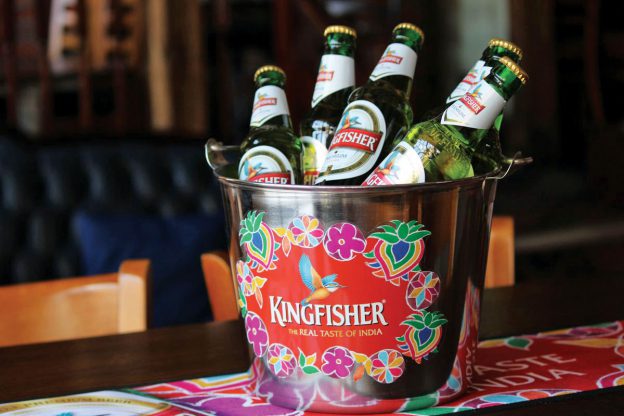Most Asian drinks brands sell the majority of their volumes domestically, where brand awareness is high and drinking cultures are long established. For example, IWSR data shows that approximately 97% of Japanese beer, wines, spirits and RTDs are consumed in the local market. When looking at just the premium-and-above price segment, over 60% of Japanese wines and spirits are consumed locally. But as competition from international brands mounts, local distillers, brewers and winemakers are dedicating more time and resources to developing their presence in overseas markets.
“There are lot of local champions that have a very strong position within their own market but little presence outside,” explains Tommy Keeling, Research Director at IWSR. “As Asian populations grow richer, consumers are trading up to imported drinks brands and the position of local champions suddenly looks less secure, so many are looking to diversify abroad.”
Keeling adds that for many brands, the real benefit of international expansion is the resulting uptick in interest in their domestic markets. In the case of Chinese spirit baijiu, for example, exports are unlikely to ever be more than a fraction of local sales, but distillers are hoping growing interest in the category abroad will boost its popularity at home.
Baijiu is a wealthy category, so brands are able to invest in high profile display advertising, such as Wuliangye’s billboard in Times Square. One of the main aims of this strategy would be to target relatively wealthy Chinese tourists who are already familiar with the brand. Luzhou Laojiao, another large baijiu producer, sponsored the 2019 Australian Open with its high-end Guojiao 1573 brand, again, principally targeting Chinese viewers.
For smaller brands such as Fenjiu, the main goal in international markets is education. “We would like to continue educating the UK market on baijiu and increase both trade and consumer awareness and understanding of this category,” says Qiqi Chen, managing director of Cheng International, the UK distributor of Fenjiu.
The brand takes a more intimate approach to marketing through meetings, masterclasses and tasting sessions, all supported through a strong social media drive. “There are two main baijiu education themes for us,” says Chen. “One is introducing Chinese food and drink culture, and the other is showing how Chinese baijiu can blend well with the western lifestyle.”
In order to offer a “more direct experience” of its brand, Fenjiu will increase its work with bars, restaurants, hotels and retailers, as well as brands outside of the food and drink industry.
Keeling adds that once brands start to expand internationally, it is crucial for them to tailor their approach to the market in which they are selling. For example, in South Korea, soju consumption is widespread, so brands mostly compete on price. However, due to shipping costs, import duties and excise taxes, the product becomes more expensive in overseas markets. As such, brands would be better to promote a different set of values.
For Asian beer brands, giving consumers an authentic taste of their respective cultures is an important way to expand their foreign fan base. The UK in particular gives brands the opportunity to grow their reach through the restaurant channel. Indian beer brand Kingfisher, for instance, has 5,000 distribution points in Indian and Bangladeshi restaurants in the UK.
John Price, head of marketing at KBE Drinks, the UK distributor of Kingfisher, notes that the brand “can be found in every type of eatery”, from high street curry houses to Michelin starred restaurants. “The restaurant channel will always remain the beating heart of our business, but it is sometimes hard to break out of this into wider consumption occasions,” he adds.
This is where sports sponsorships come in. Through commercial partnerships such as these, brands become visible in a new context. Kingfisher is currently a partner of Southampton FC, Leeds United FC, Sussex County Cricket and Wigan Warriors Rugby League Club. “We don’t take on a partnership unless we get pouring rights and this gives consumers the chance to re-evaluate the brand in a fun and exciting environment,” adds Price.
Thailand’s Chang Beer, which is the official beer of Leicester City Football Club, has an international marketing strategy centred around provenance and heritage. “Growing internationally is a journey that is carefully curated with the right partners, the right channels and the right marketing mix,” says Ronnie Teo, head of group marketing at Chang.
“It is important to ensure that we work with partners who share the same long-term convictions as us. Our partners understand what our Chang brand stands for – its provenance and values – and collaborate with us to market the brand in the right sales channels with the right messaging.”
For a number of years, Chang has hosted the Chang Sensory Trails event in London, which celebrates Thai cuisine in a contemporary setting filled with music and street art. Events such as these allow Asian brands to become an essential part of the cultural experiences and representations of their respective nations.
Ultimately, says Teo, to grow internationally, brands must first have a strong domestic business. “To that end, we have seen our marketing efforts in Thailand pay dividends, with our market share growing by more than 15% share points between 2014 and 2019. This strong growth has made Chang an iconic local champion, appealing to Thais, as well as the millions of tourists that visit Thailand annually. With a solid domestic foundation, we were then able to springboard our international marketing efforts.”


